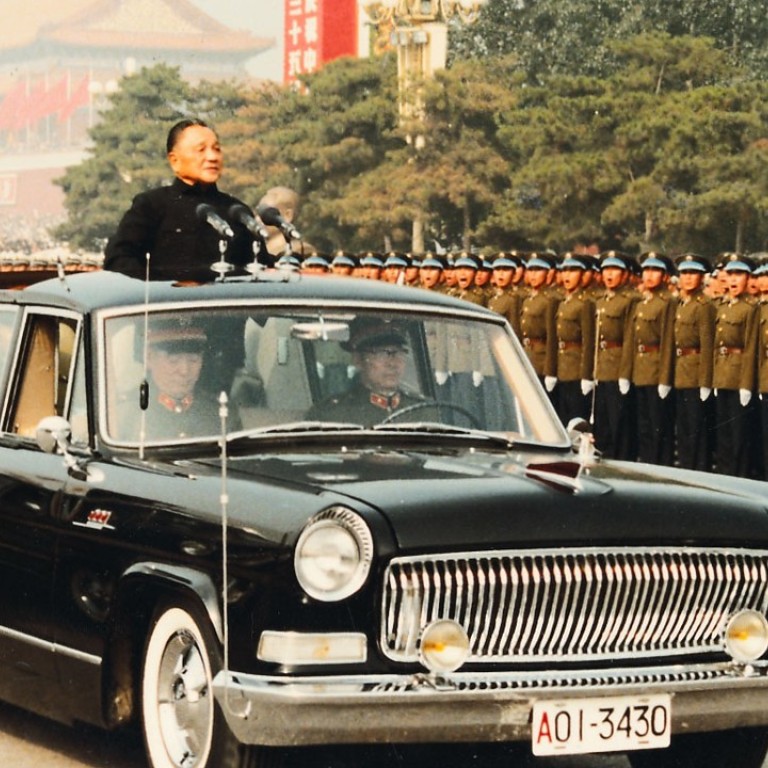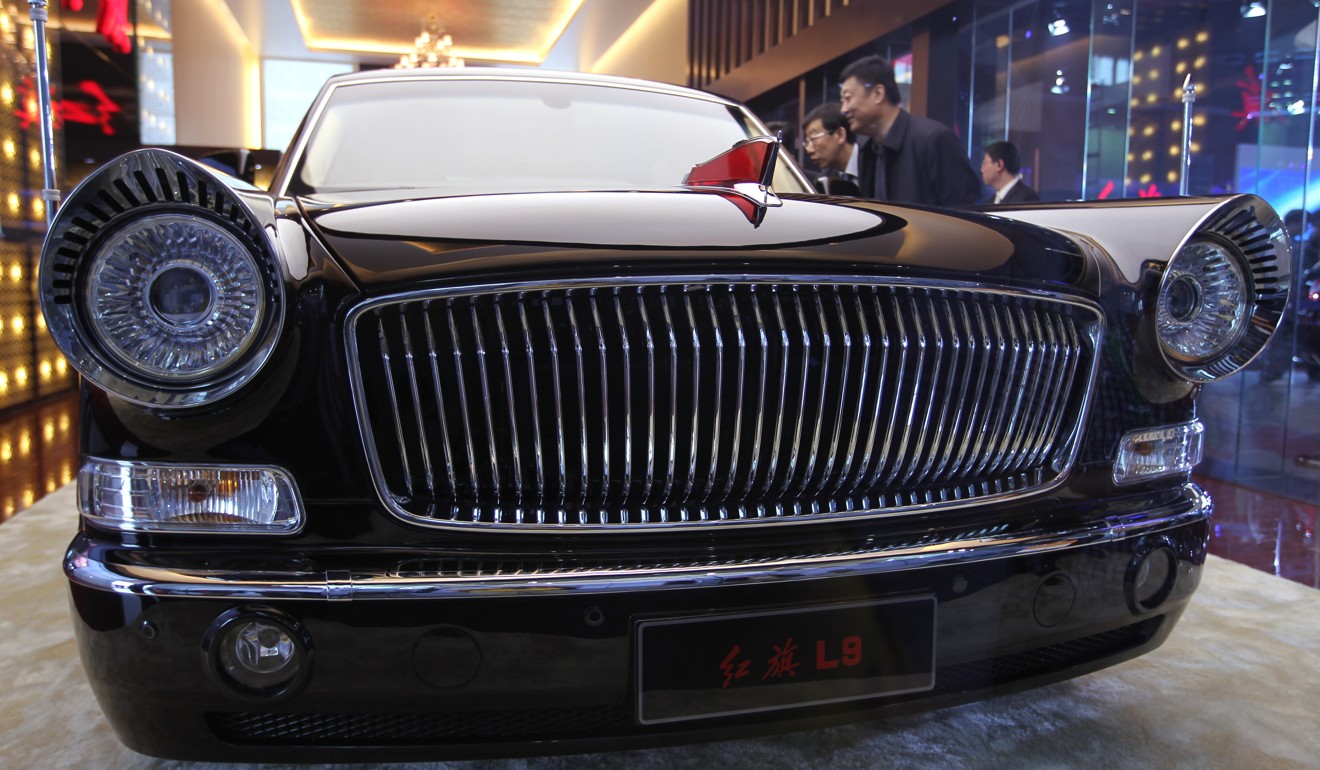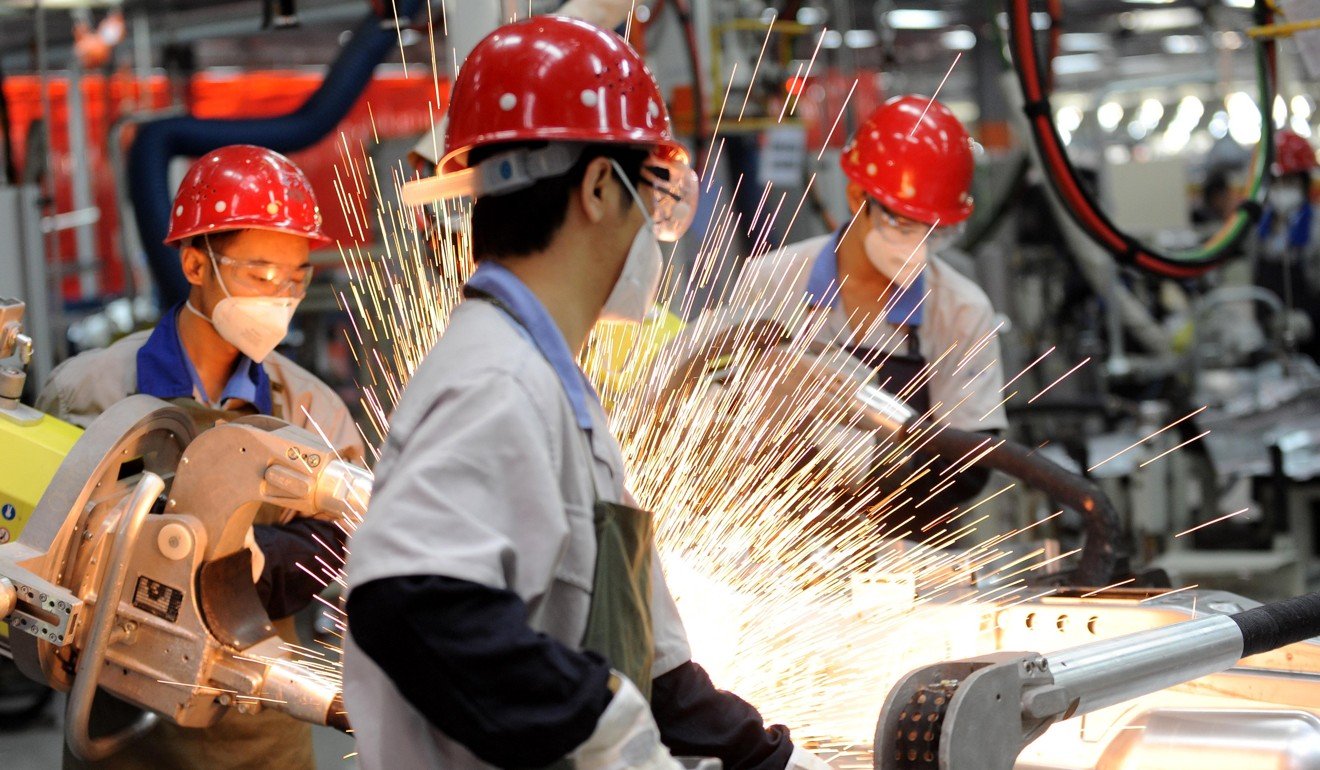
FAW, maker of China’s iconic Red Flag cars, is offered record 1 trillion yuan credit line
- It comes as the country’s carmakers face hazardous times amid slowing sales and a law change that may dent their profits
- If fully used, the US$145 billion of credit available to FAW would be enough to buy General Motors, Ford and Tesla combined
It is one of China’s most beloved home-grown companies, its iconic Red Flag cars an instantly recognisable symbol of Communist Party might.
So it stands to reason Beijing would pull out all the stops to keep FAW Group, the country’s oldest carmaker, afloat during challenging times.
The government has lined up a record credit line of 1.015 trillion yuan (US$145 billion) for the time-honoured vehicle manufacturer, signalling an unprecedented level of financial support for state-owned enterprises.
If fully used, it would be enough to buy General Motors, Ford and Tesla combined.
“One trillion yuan is a staggering amount of cash that can be used to do so many things, such as big buyout deals and investment into new areas such as electric cars,” said Wang Feng, chairman of Shanghai-based financial services firm Ye Lang Capital. “It’s the latest sign that state-backed businesses are still the priority. It is not unusual for the government to use its financial resources to support a large state-owned company.”
Shares of FAW Car, the group’s listed unit, jumped by their 10 per cent daily limit amid a declining market in Shenzhen to a two-week high of 6.18 yuan.
FAW made the announcement on Wednesday night on its WeChat social media account, without explaining why it has been offered the biggest credit line in China’s history. But it comes as the country’s carmakers face hazardous times amid slowing sales, a stuttering economy and a law change that may prove detrimental to their bottom line.

The unprecedented show of support for a state-owned firm also comes at a time when private businesses are reeling from fears they have been left hanging in the wind amid the worst rout to hit financial markets in years. Beijing has pledged to support private companies, but no concrete steps have yet been taken to help them weather the storm.
Made in China 2025: world’s biggest auto market wants to be the most powerful maker of electric cars
FAW, the 65-year-old carmaker and partner of Volkswagen and Toyota Motors, would receive up to 1.015 trillion yuan of credit from 16 state banks, including China Construction Bank and Industrial and Commercial Bank of China.
The credit line, rather than providing loans, essentially represents a willingness by the banks to extend a maximum of 1 trillion yuan in loans to the carmaker, if required.
The symbolic significance of FAW, formerly called First Automotive Works, cannot be understated. It is the company behind China’s Red Flag limousines, the prestigious vehicles that used to ferry the country’s senior officials around and a source of huge national pride.
FAW also assembles the Audi marque in China, where the standard black Audi A6 sedan had remained the staple ministerial ride for more than a decade.
Mao Zedong, one of the key founders of the People’s Republic, oversaw the establishment of the firm in 1953 with the help of the former Soviet Union. Former President Jiang Zemin spent six years working for FAW between 1956 and 1962, rising from an engineer to a chief manager of the group’s power unit.

Infographic: Who’s who in China’s car industry - Chinese carmakers and their foreign partners
FAW’s glory days, which helped to catapult China into the world’s largest vehicle market, may be in the rear-view mirror, as the country’s quarterly sales fell for the first time in September amid a slowing economy.
A consensus prediction among analysts is that China will report a drop in car sales for the whole of 2018.
By 2022, foreign carmakers, currently restricted to 50 per cent ownership in a joint venture, will be allowed to own a mainland plant outright.
The deregulation is expected to have a huge negative impact on Chinese vehicle companies such as FAW and SAIC Motor as they have been relying on joint ventures with international brands like Audi and Volkswagen over the past two decades to make profits.
“It is highly expected that a consolidation of China’s auto industry will take place in the coming three years,” said Nomura analyst Benjamin Lo. “Some weak domestic companies will have to be taken over by larger rivals.”
China’s biggest state-owned auto companies including FAW, SAIC, and Dongfeng Motor will be among the top beneficiaries of the consolidation because they will receive financial support such as easy loans and subsidies from the government to facilitate merger and acquisition deals, said fund manager Ivan Li with Loyal Wealth Management.

